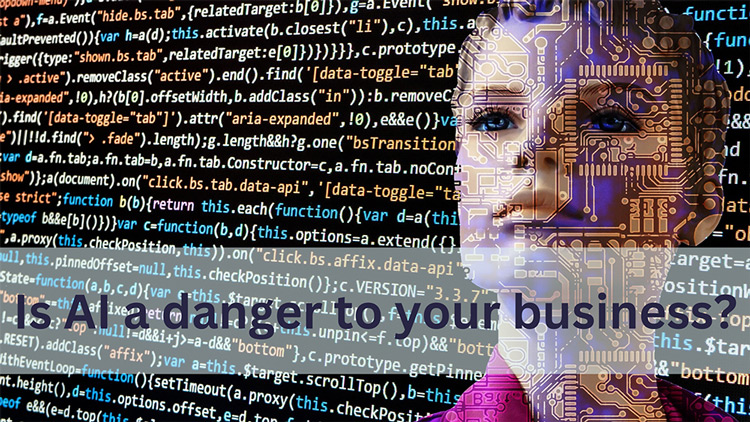Is AI a danger to your business?

People seem to fall into two groups – those who see AI as a threat and those who are excited by its potential.
Recently the media have featured massive frauds generated using AI. These are just two high profile examples.
Deepfake video technology was used to dupe someone in the finance department of a multinational company out of the equivalent of £20 million. They used multiple fake videos and AI generated voices to replicate the company's CFO and other members of staff on WhatsApp and emails.
Martin Lewis (Money saving expert) has been targeted, when a fake video presented him endorsing a fake investment project.
Currently the fraudsters appear to be targeting high end businesses. It's easy to assume that, if you aren't a big corporation scammers won't target you, but as the fraudsters become proficient in creating this kind of deepfake material, they're likely to see smaller organisations as less likely to have the same level of security as bigger companies.
It's not all bad
At the other end of the spectrum AI offers many advantages to business and companies that don't embrace it are likely to be left behind.
20 years ago employees were worried that the internet would put them out of a job. Instead it's created a host of new opportunities. Similar worries about AI are raising their heads.
If ChatGPT can create a report with a relatively small amount of information, does that mean that someone will lose their job? I don't believe so, a futurist commented that 'AI won't take your job, but someone who knows how to use it might'.
From a business owners viewpoint, there are some common sense steps to take. Firstly, create a policy about how AI can be used within the organisation – and review it regularly.
Secondly, ensure you have the right level of cyber-security, ideally put in place by experts, such as two-factor authentication. Also, comprehensive cyber-insurance that covers you if the worst happens.
Thirdly, carry out due diligence on new suppliers, customers and staff. This is particularly important when you don't actually meet people face-to-face. In today's virtual world many companies never sit in the same room as supplier representatives, customers may be in a different country and even some team members may work 100% remotely.
It's a reputation issue
People are quick to make judgments. There are apps to spot games that are created completely by AI, software to help teachers check work submitted for being AI generated and the screen actors union is up in arms about studios creating films using AI instead of real people. It won't be long before the accounting software integrates AI to speed up accounting processes and improve efficiency.
The Institute of Chartered Accountants in England and Wales (ICAEW)even tested Chat GPT on the ICAEW exams
However, I believe that accountants need to be able to achieve much more than an exam pass to be a good practitioner, which is why most accountants work with a team who can help them to expand and learn, the personal touch is still crucial when it comes to business and accounting advice.